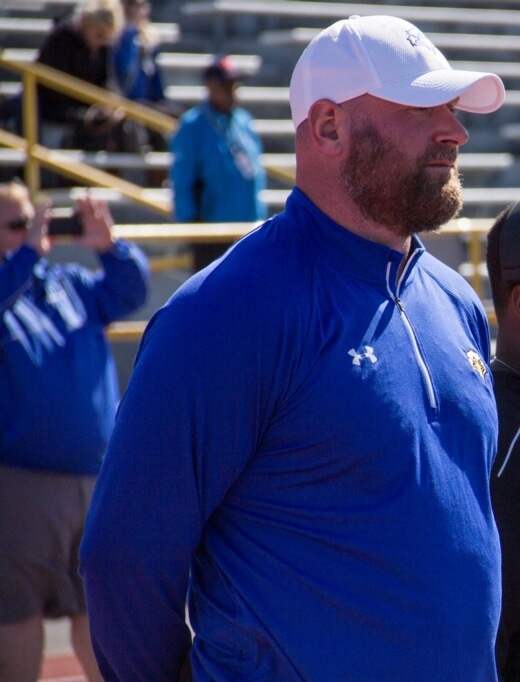
Some, if not all of the things I'll talk about have been written and talked about before. I'm not presenting any magical code. I'm just trying to put some thoughts out there that may help people who coach or work with people.
One of the most important times in a coach's career is every Fall when the new crop of freshmen and transfer athletes come in. At the FBS level they get a lot of early enrollee freshmen in January. But, for most, it's the Fall.
I believe it's incredibly important to set your tone and your expectations with them on Day 1. I've looked at my notes for incoming freshmen weight room orientation from the last 4 years and tried to recollect my approach. As I looked at things it kind of came across in this order:
- Greeting
- Introduction
- Expectations
This is all very broad and has very little to do with the actual day to day lifting environment. It's more like the written and unwritten rules of the weight room and how things will be done (My Way).
Greeting
As simple as it sounds. I start with my name, my title and my lifting and coaching experience expressed in decades. "My name is Matt Rhodes. I'm the Head Strength and Conditioning Coach. I've been the head coach here for (this year it'll be 5 years). I've been lifting and coaching for almost 3 decades so you're in good hands."
I keep it short, sweet and simple.
Introduction
My introduction happens when I greet the freshmen. Then it goes into the weight room rules (dress code, on-time policy, weight room conduct, etc...). From there I give a brief overview of what I expect. It's everything from an explanation of how workouts are performed, tempo of the workouts, that they better have thick skin and be ready to be coached/corrected/chewed out if they don't follow the rules to how to clean up the weight room. I try to cover a lot of the little stuff that you may not think about, but absolutely comes up at some point. If I don't cover it, I can't expect them to understand it.
Expectations
As I introduce the weight room it naturally flows into expectations. Again, I try to cover everything that may come up. I touch on stuff like:
- Don't call me sir and don't "yes sir" me. I didn't serve as an officer in the US Military and I don't deserve that title. And, "yessir" is a programmed response.
- Don't talk if I talking. Nothing you have to say is important when I'm talking.
- Don't say ANYTHING when I coach/correct you. I don't care about anything that comes out of your mouth (excuses) when I'm telling you that you did something wrong. If your talking you can't listen.
- Despite what your mommy and daddy tell you, you're not perfect. You will make mistakes. In order to improve you have to listen, take coaching and apply it.
- Follow the workouts as they are written. When you can express your lifting experience in terms of decades you and I can talk on the same level. Until then, I tell you what to do and you do it.
- Show a sample workout on the board and explain how they are to go through it/the order of exercises.
- Thorough (and MANY times repeated) explanation of how we perform our conditioning/agility drills. Start behind the line. Finish THROUGH the line, etc...
There are more, but you get the idea. Some of this stuff is verbatim and some is paraphrased, but it's important to set the tone and let them know right of the bat that I am the king, the emperor, the dictator... There's one way to do things: My Way. There is no highway option.
This whole deal takes about 20 minutes. Sometimes 30 if I'm especially talkative that day.
Very simply this is an introduction of myself, how the weight room is run and what I expect of them when they work with me. There's a mix of genuine communication and some "intimidation." I think it's very important that they know I run the show.
The next step is showing them that I care about their success and getting them to trust in the way I do things. This takes weeks, months and years, in some cases.








